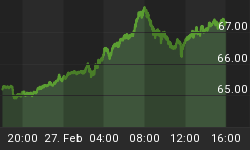Everyone today is talking about the "Fiscal Cliff". It is a small decrease in spending combined with a significant tax increase. Let's put this in perspective. The budget for fiscal year 2012 was $3.8 trillion and the deficit (shortfall which had to borrowed) was $1.1 billion. If no deal is reached, and we go "over the cliff", then spending will be automatically cut by $110B. This is less than 3% of the total budget and 10% of the deficit.
Let that sink in. The government would still borrow about a trillion dollars a year. The debt would rise to $20 trillion by 2016. This is not much of a solution.
To make the math easier, think of it in terms of a family budget. The total salary of the parents is $38,000 but spending is $49,000; the family borrows $11,000 every year. Now they propose to address the problem by spending $47,900, a reduction of $1,100. The kids would probably be screaming about cuts to their allowance.
In addition to a small cut in spending, if we go over "the cliff", there will be increases in many taxes, some of them not so small. The income threshold for a taxpayer to be forced into the Alternative Minimum Tax falls back down to the 2000 level. Under AMT rules, most deductions are not allowed. Even without an increase in tax rates, there can be a large increase in the tax bill.
One tax rate increase is that the capital gains tax rises by 33%. Many supporters don't realize that investors have a choice whether or not to take risk, especially in startup companies. Most startup investments are a total loss to investors. The few that produce big gains must pay for all of the others plus enough profit to make it worthwhile. The higher the tax, the fewer startups justify an investment and the more investors will ignore startups altogether.
How did we get to the point where a token effort to slow the rate of ascent of the skyrocketing public debt is regarded as falling off a cliff? Why do so many people want to increase taxes on investors and entrepreneurs, and ignore that this will hurt the economy, reduce jobs, and hit their pension fund or 401k?
A very large part of the economy exists only because of government spending. This is not just food stamps, corporate subsidies, and bailouts for big banks. It also includes government-guaranteed loans for students and homebuyers. It includes Social Security and pensions that are provided or guaranteed by the government. And it includes many other things; from Medicare and other healthcare (even pre-Obamacare) to bridges and roads, to water, sewer, and power. It would be hard to think of many sectors of the economy that did not have any government subsidies.
To some people, every problem has a simple answer: more government spending. To others, the government must cut "waste", but not "vital programs". It is obvious what they mean by "vital"--programs from which they benefit. While most people seem to agree on cutting spending, they cannot agree on any actual, specific cuts.
They are Fiscal Deniers. They deny two facts. First, they deny that the economy has become dependent on government spending. Business would fail and people would lose their jobs if the government stopped spending.
Second, they deny that government spending has become dependent on borrowing. If the government could only spend its tax revenues, it would have to drastically cut spending.
Fiscal Deniers prefer not to acknowledge these two facts. But reality will have its final revenge. If we don't cut spending voluntarily now, then sooner or later the US will run into a brick wall. To paraphrase Margaret Thatcher, we will run out of other peoples' money. When that happens, it will be a nightmare that makes the "fiscal cliff" look like a pleasant dream.















